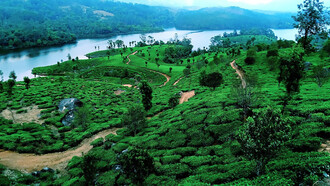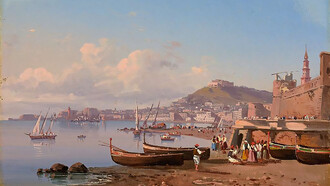In Costa Rica, locals frequently greet each other with the words, “Pura vida!” In English, the Spanish saying translates to “pure life,” but it means more than that. Pura vida encapsulates the Costa Rican easygoing way of life and positive cultural philosophy. Costa Rica is ranked by the World Economic Forum as one of the happiest and most sustainable countries in the world. Pura vida has become Costa Rica’s unofficial slogan.
Pura vida embodies a sense of optimism, which may be reflected in the fact that Costa Rica is one of the few countries that has no army. Costa Rica abolished its army in 1948, after a civil war. The decision is codified in the country’s constitution and celebrated annually. Costa Rica has civilian authorities, known as the Public Force, responsible for assuring border security and combating crime. Costa Rica also has a National Police force for law enforcement and managing internal emergencies.
Some say the decision to abolish the army was rooted in pacifism, but others claim it was to eliminate a potential political threat by the military at the time. Alvaro Ramos, former Minister of the Interior for Costa Rica, emphasized that “Costa Rica…does not have an aggressive or offensive position towards anyone in the world, towards any other nation or group…the State decides to resolve things not by force.” The Legislative Assembly declared “perpetual, active, and unarmed neutrality in conflicts between States and within them,” choosing to resolve conflict through diplomatic means.
It is remarkable that Costa Rica has remained peaceful and stable in a region historically marked by political instability and armed conflict. Costa Rica is bordered by Nicaragua in the north and Panama in the south. One of its presidents was awarded a Nobel Peace Prize for his efforts to broker peace agreements in Central America.
Instead of allocating funds to an army, the country’s resources have been used to improve health, education, social services, and environmental conservation. It has one of the highest literacy rates in Latin America and provides its citizens with universal health care coverage. Nearly thirty percent of its land is protected as national parks, reserves, or wildlife refuges. Ninety-eight percent of its electricity is generated from renewable energy sources, such as wind, hydropower, and geothermal energy. Such planning laid a strong foundation for Costa Rica’s development and as a destination for tourists.
Many stars visit Costa Rica to enjoy its beautiful climate, clear waters, and gorgeous rainforests and volcanoes. Our taxi driver proudly told us that basketball great Michael Jordan came to his town twice to go sport fishing. Demi Moore, Catherine Zeta-Jones, George Clooney, Leonardo DiCaprio, Beyoncé, and other luminaries have been seen here as well, some of whom have bought vacation homes in Costa Rica.
There is a large expat community in Costa Rica. By some estimates, ten percent of the population in Costa Rica are expats who have permanently located here. The largest number of expats in the country live in the San Jose area, known for its near-perfect climate.
The cost of living is lower in Costa Rica than in many Western countries. The people, known as ticos and ticas, are friendly, and it is a relatively safe area. And the government offers some incentives and benefits for expats, primarily investors and retirees, including tax exemptions. Both the mountain areas and shoreline have become top retirement destinations for foreign nationals, especially Americans, drawn to its nature, tropical climate, biodiversity, beaches, and more.
Though pura vida captures a relaxed pace and attitude towards life, the pura vida lifestyle includes an active side. Ziplining, surfing, ATV touring, yoga, hiking, and horseback riding are popular activities in Costa Rica.
The phrase “pura vida” can serve as a hello, goodbye, or thank you. It is a welcome answer to “How are you?” It can be used in almost any situation in Costa Rica. The slogan is central to the country’s identity, influencing how its people interact and view the world. I found myself using it frequently on the two trips I have taken to this lovely country so far.
Some trace the phrase to a 1956 Mexican film called Pura Vida, in which the main character was known for his cheerful outlook. Pura vida is well ingrained in Costa Rica now, however, as its most used and universally accepted saying.
Costa Rica is known for its stunning natural beauty, rich biodiversity, and commitment to peace. Its decision not to have an army made it a symbol of hope and inspiration, and it is a source of pride for many Costa Ricans. Its pura vida mindset, encouraging people to appreciate the present moment and find joy in all experiences, attracts visitors from all over the world, many of whom choose to stay for good.















